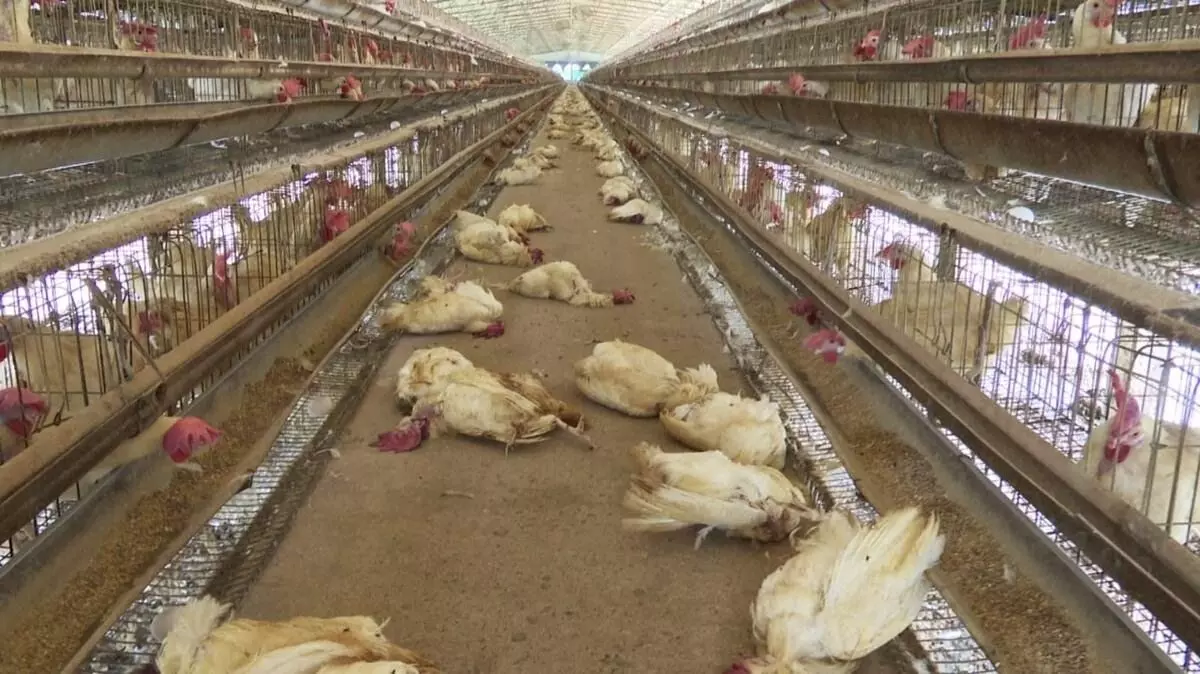Bird Flu: Godavari region villages put on alert; here are precautions for poultry farms
Samples sent to the National Institute of High Security Animal Diseases, Bhopal, confirmed the presence of avian influenza
By Newsmeter Network
File Photo
East Godavari: The Animal Husbandry Department has declared alert zones in affected areas following confirmed cases of bird flu (H5N1 virus) in Velpur village (West Godavari district) and Kanur Agraharam (Peravali Mandal, East Godavari District).
Since January 13, nearly four lakh poultry birds have died in the Godavari region with symptoms suspected to be caused by the H5N1 virus. Avian influenza is a viral infection caused by influenza type A viruses, primarily affecting birds, especially poultry.
Samples sent to the National Institute of High Security Animal Diseases, Bhopal, confirmed the presence of avian influenza.
10 km around the affected villages put on alert
The deceased poultry was buried and a one-km radius around the affected villages was declared an alert zone.
The district collector convened an emergency meeting and Rapid Response Teams (RRTs) were formed, comprising officials from the Police, Revenue, Forest and Animal Husbandry departments.
A 10-kilometer radius around the villages was designated as a surveillance zone, restricting the movement of poultry and poultry products.
As many as 721 RRTs were deployed to monitor poultry movement across state borders, according to Dr T Damodar Naidu, director of the Animal Husbandry Department.
Precautionary measures: Dos and Don’ts
1. Footbaths with 0.01% potassium permanganate should be placed at poultry farm entrances.
2. Disinfection: Use 2% sodium hypochlorite, bleaching powder or lime around poultry sheds.
3. Personal hygiene: Poultry workers should wash their hands and feet with Dettol or soap before entering and after leaving the sheds.
4. Restricted entry: New birds, as well as vehicles, feed and equipment from other farms, should not be allowed inside the farm.
5. Safe disposal: If a chicken dies, dispose of it properly by burning or burying it along with the surrounding litter, feed and water. Clean egg trays, trucks, and cages with 2% sodium hypochlorite or 1% sodium hydroxide.
6. Regular cleaning: Water tanks and feeding bowls should be sanitized with 1% sodium hydroxide.
7. Preventing contamination: Farms should be secured to keep migratory birds away. Any dead birds in the enclosure must be immediately cremated or buried.
Authorities urge poultry farmers and the public to remain vigilant and follow these measures to prevent the spread of bird flu.